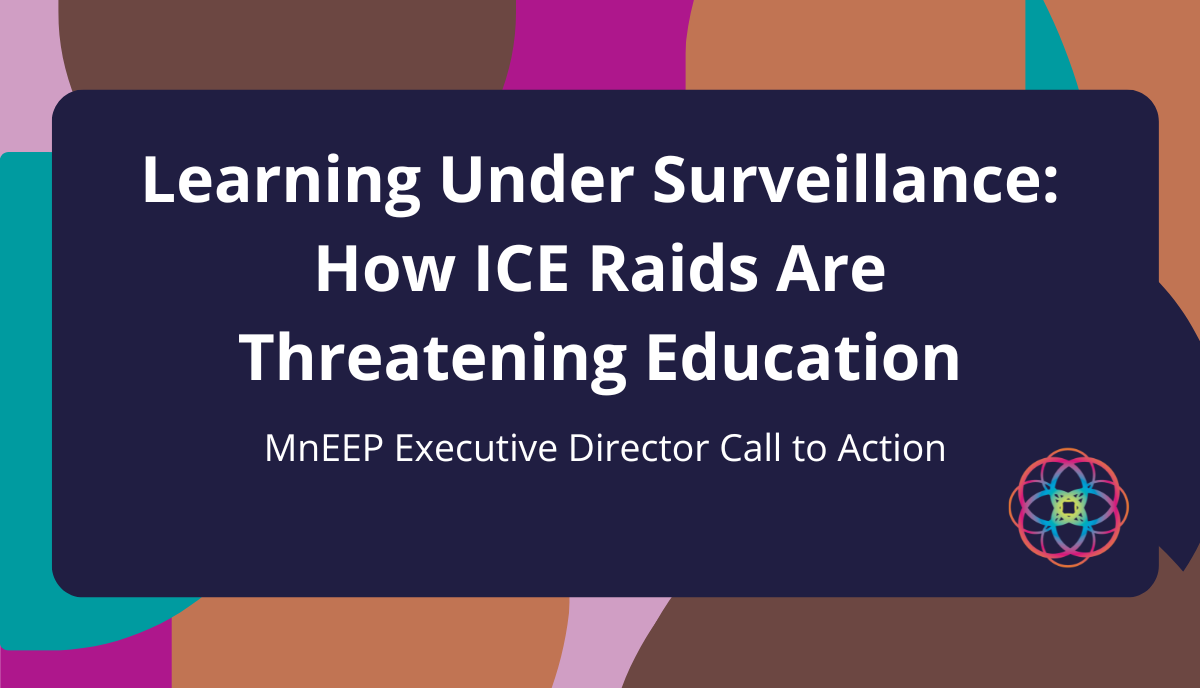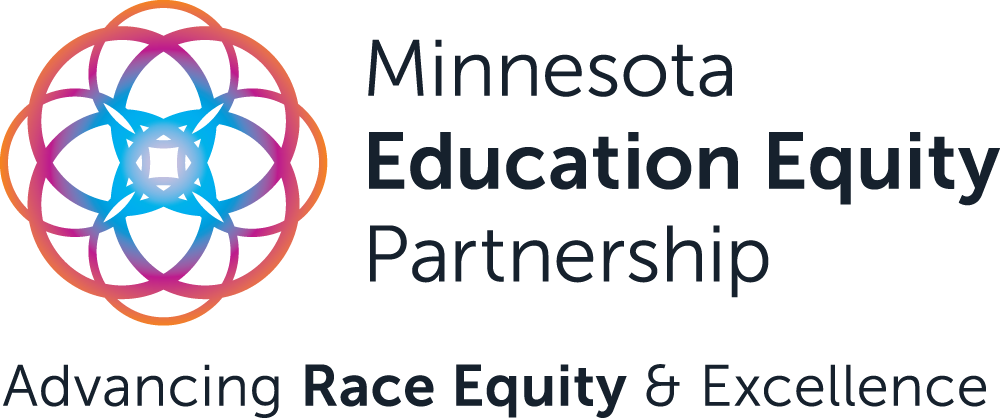
Learning Under Surveillance: How ICE Raids Are Threatening Education
Recently, a parent of a student at the PreK–8 charter school where I serve as a Board member was arrested near the school while taking their child to class. At the time, it was unclear who was responsible for the arrest, but we would later learn it was likely carried out by Immigration and Customs Enforcement (ICE).

The parent’s vehicle was stopped by a group of individuals in unmarked cars, wearing vests labeled “Police”. This practice has misled people to believe they are being confronted by local police and is part of a documented pattern of ICE agents misrepresenting themselves as such. The parent was detained on the spot, and the child was taken home by these unidentified individuals—leaving the family and our school community in shock and distress
A School Under Surveillance
When school officials contacted the St. Paul Police, they confirmed these were not their officers and that they had no knowledge of the incident. Meanwhile, school counselors are providing support to the student as they process this traumatic experience. The whereabouts of the parent was unknown for a while but later we learned he was taken to a jail in a nearby county contracted by ICE.
Later that day, the school’s superintendent spotted an unmarked car parked across the street for an extended period of time. She went outside to inquire of their presence and when the driver saw her approaching, they sped off. The vehicle matched photos of one of the cars involved in the morning arrest.
Word quickly spread throughout the school that they are being surveilled and that people not in uniform or with clear designation as federal agents are doing the surveilling. The implication is chilling: More arrests of parents could be possible as they escort their children to school, deepening fear and uncertainty among families and the community.
The Impact on Schools and Students
The fear of being stopped and taken away while simply accompanying a child to school can terrorize a learning community, making it increasingly difficult for educators, school leaders, and school staff to fulfill their roles effectively. This fear undermines the very foundation of every school’s mission, as ensuring the safety of students and their families is a fundamental condition for an effective learning environment.
Students cannot learn in an environment of fear. Extending g immigration enforcement to school environments directly contradicts the principles of a safe and effective school system.
This is why we have both a legal and professional obligation to prioritize the safety and well-being of each and every student, ensuring that every school remains a place of trust, learning, community, and opportunity for all students.
The Right to Public Education
The right to a public education is long-established law in our country. The landmark 1982 U.S. Supreme Court decision of Plyler v. Doe affirms that equal protection principles apply to all students inclusive of Undocumented students to not be denied a public education. Our Minnesota Constitution’s call for a “general and uniform system of public schools” reinforces this principle. Our state’s K-12 enrollment policies and rules, as well as our state’s Human Rights Act, prohibits inquiring about a student’s immigration status.
Moreover, Minnesota’s K-12 teaching licenses establish a legal and ethical duty to not discriminate against any student, including based on their national origin. Finally, Minnesota statutory law and administrative rules empowers and expects teachers to protect students from conditions harmful to their health and safety.
For years, U.S. presidential orders have made schools off-limits for most immigration enforcement actions. There are sound and moral reasons for this, including ensuring that schools are safe places where student’s academic and mental well-being are prioritized and nurtured, and not disrupted by the trauma inherent with rounding up human beings for deportation.
Schools should be safe places for learning and not places for human raids.
Yet, these recent events show a clear departure from that principle, as schools are now being surveilled and parents arrested while engaging in the most basic aspects of family life—dropping off their children at school.
This blatant disregard for the sanctity of school environments erodes the trust between families and educators, leaving schools unable to effectively fulfill their mission.
The Impact on Education Equity
While MnEEP’s mission is not solely focused on immigration status justice, we recognize that immigration enforcement actions can directly and negatively impact our work in creating just and equitable education systems where students who are People of Color and Indigenous (POCI) can succeed.
For this outcome to be realized, governmental actions cannot create barriers to academic success. When immigration policies instill fear, disrupt learning, and separate families, they strip away the promise of public education and weaken our nation’s social and economic future. These harmful policies do not strengthen our country–they weaken it.
MnEEP calls on the U.S government to halt immigration enforcement in or near our schools, colleges, and universities. The well-being of students, the integrity of our education systems, and the success of our nation depend on such restraint.
MnEEP remains committed to defending the rights of all students to a safe and supportive learning environment. We will continue to stand with educators, families, and communities in advocating for policies that protect, uplift, and empower each and every student—regardless of their immigration status.
MnEEP will also continue to provide information, resources, support, and networking opportunities to equip educators, , school systems, communities, and families with the tools they need to uphold the right to universal, unimpeded, safe and supportive schools for all K-12 students—including POCI, immigrant and English Learner students. (Check out our Creating Safe & Supportive Schools for Immigrant and English Learners Toolkit to learn more about upholding student rights during ICE enforcement threats.)
The ability to safely access education without fear of arrest, surveillance, or separation is not just a moral principle—it is a fundamental human right and a legal guarantee.
We hope you will join us in ensuring every students’ rights and humanity are honored, protected, and uplifted by our education system.
Carlos Mariani Rosa
Executive Director, Minnesota Education Equity Partnership (MnEEP)

